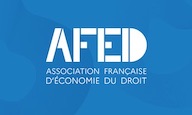In developed countries, the potential for vote-buying by politicians is often limited by legal rules and procedures. In the French Parliament however, all deputies and senators had until 2017 large discretion to fund local projects for a total amount of about 130,000 euros per yer. Using all subsidies granted by Senators in France during the period 2014-2017, we investigate whether they allocated these public funds strategically to advance their personal electoral interest (vote-buying for the next senatorial
or municipal elections) or to advance other types of objectives. Our empirical strategy takes advantage of several features of senatorial elections (staggered elections, discontinuities in electoral body, etc.). We find that, as they approach reelection, senators distribute more money in total, to more recipients, increasingly located in their constituency, which is consistent with a
vote-buying strategy. We also find that they direct subsidies to politically-unaligned municipalities. However, we do not find changes in the share of subsidies allocated to associations.
- Poster

 PDF version
PDF version

